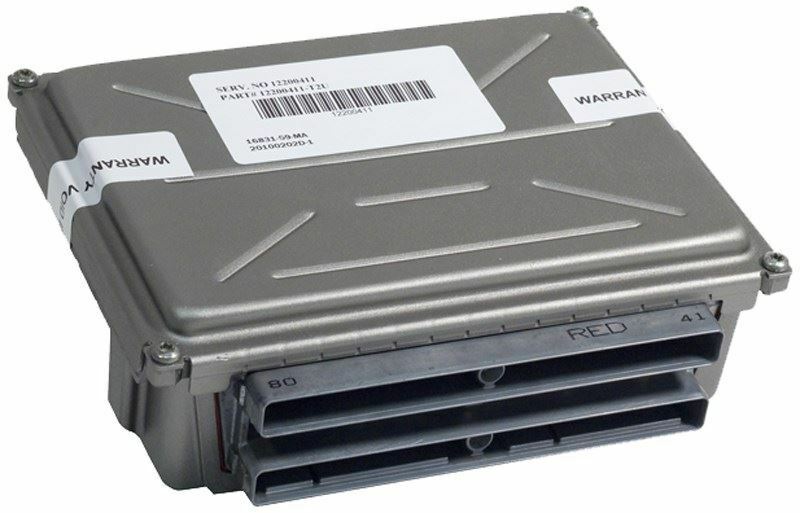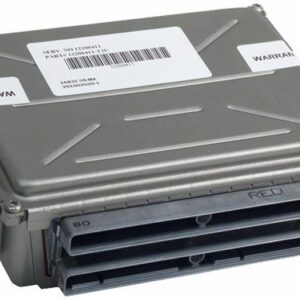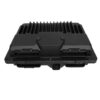Restore Your Vehicle’s Brain and Performance
If you’re dealing with a frustrating check engine light, poor fuel economy, erratic engine behavior, or a no-start condition in your 1998 Oldsmobile Intrigue or other compatible GM vehicle, a failing Powertrain Control Module (PCM) is often the culprit. As the central computer for your engine and transmission, its health is critical. This isn’t just a replacement part; it’s a complete, ready-to-install solution. We take the guesswork and extra expense out of the equation by programming this module specifically to your car’s Vehicle Identification Number (VIN) with the latest GM software updates before it ever leaves our facility. This ensures perfect communication between components and restores factory performance standards.
Real-World Repair Story
Real-World Repair Story
I remember a 1998 Buick LeSabre that came into my shop with a complaint that stumped two other mechanics. The car would randomly stall at stoplights, but never set a consistent check engine code. We checked fuel pressure, spark, and sensors—all tested fine. On a hunch, I monitored the PCM’s data stream and noticed the processor would occasionally drop communication for a split second, just long enough to cause a stall but not long enough to log a hard fault. We replaced it with a VIN-programmed module like this one. The stalling vanished immediately. It’s a classic example of how internal PCM failure can create ghost-like problems that only a correct replacement can solve.
Is Your GM Vehicle Showing These Signs?
A failing engine computer can manifest in numerous ways. If you’re experiencing any of the following, it might be time to replace your PCM. Over my 20 years in diagnostics, these are the most common indicators I’ve seen:
- ✔ Persistent Check Engine Light (CEL)
- ✔ Engine stalling, stuttering, or misfiring
- ✔ Drastic decrease in fuel mileage
- ✔ Harsh or incorrect automatic transmission shifting
- ✔ Vehicle won’t start, but the battery and starter are good
- ✔ Failed emissions test
- ✔ Diagnostic Trouble Codes (DTCs) such as P0601, P0602, P0605, or P0606 pointing to internal module failure.
A Straightforward Guide to Installation
Installing your new 1998 Intrigue Powertrain Control Module is a job most DIYers can handle with basic tools. Our pre-programming service means you won’t need a trip to the dealer for expensive flashing.
- Safety First: Disconnect the negative terminal from your vehicle’s battery to prevent any electrical shorts.
- Locate the Old PCM: On most of these GM models, the PCM is located in the engine bay, often inside the air filter housing or mounted to the firewall. It’s a silver metal box with multiple large electrical connectors.
- Disconnect and Remove: Carefully unplug the wiring harness connectors. They have locking tabs that need to be released. Once disconnected, unbolt the module from its mounting bracket.
- Install the New Module: Bolt the new, pre-programmed PCM into place. Firmly reconnect the wiring harnesses, making sure each one clicks securely into position.
- Reconnect Power: Reattach the negative battery terminal and tighten it.
- Final Step: Start the engine and let it idle for 5-10 minutes. This allows the computer to complete its internal self-checks and begin learning your vehicle’s specific parameters.
Verified Vehicle Compatibility
This module is a direct replacement for service number 9357034 and is also compatible with 09356741, 16236757, 9357440, and 9366314. It is guaranteed to fit the following vehicles:
- Alero: 1999 (3.4L)
- Achieva: 1998 (3.1L)
- Bonneville: 1998
- Camaro: 1998 (3.8L)
- Century: 1998 (3.1L)
- Cutlass: 1998, 1999
- Eighty Eight: 1998
- Firebird: 1998 (3.8L)
- Grand Am: 1998 (3.1L), 1999 (3.4L)
- Grand Prix: 1998
- Intrigue: 1998
- LeSabre: 1998 (3.8L)
- Lumina Car: 1998
- Malibu: 1998 (3.1L)
- Monte Carlo: 1998
- Park Avenue: 1998 (3.8L)
- Regal: 1998
- Riviera: 1998 (3.8L)
- Silhouette: 1998
- Skylark: 1998 (3.1L)
- Trans Sport: 1998
- Venture: 1998 (3.4L)
Frequently Asked Questions
Real-World Repair Story
I remember a 1998 Buick LeSabre that came into my shop with a complaint that stumped two other mechanics. The car would randomly stall at stoplights, but never set a consistent check engine code. We checked fuel pressure, spark, and sensors—all tested fine. On a hunch, I monitored the PCM’s data stream and noticed the processor would occasionally drop communication for a split second, just long enough to cause a stall but not long enough to log a hard fault. We replaced it with a VIN-programmed module like this one. The stalling vanished immediately. It’s a classic example of how internal PCM failure can create ghost-like problems that only a correct replacement can solve.



